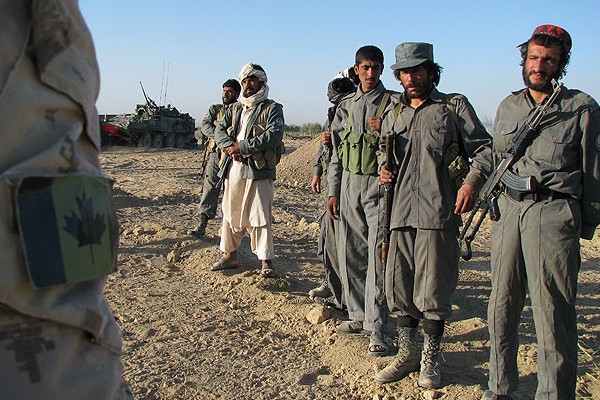 When Electronic Intifada contacted the New York Times‘ Jerusalem bureau chief Ethan Bronner to ask him if it was true his son had just joined the Israeli army and if so whether he thought this would create a conflict of interest, the newspaper avoided giving a straight answer. It gave what has become so familiar — a response which in the paper’s scrupulously measured but condescending tone implicitly said: who are you to question our judgment?
When Electronic Intifada contacted the New York Times‘ Jerusalem bureau chief Ethan Bronner to ask him if it was true his son had just joined the Israeli army and if so whether he thought this would create a conflict of interest, the newspaper avoided giving a straight answer. It gave what has become so familiar — a response which in the paper’s scrupulously measured but condescending tone implicitly said: who are you to question our judgment?
“Mr. Bronner’s son is a young adult who makes his own decisions. At The Times, we have found Mr. Bronner’s coverage to be scrupulously fair and we are confident that will continue to be the case.”
To be oblique and not simply say, yes, Bronner’s son is in the IDF, but to instead say he “makes his own decisions,” is in effect to say: What gives you the audacity Mr Abunimah to think that we should be obliged to directly answer your meddlesome questions?
Similarly, the paper’s own public editor Clark Hoyt gets waved off by executive editor Bill Keller who simultaneously clearly feels obliged to pay mock homage to the public editor’s role. Lest readers be confused because they thought Hoyt is what the paper says — “the readers’ representative” — Keller gets all slimy and says that he actually has more respect for the readers than does Hoyt and that’s why Bronner won’t be getting reassigned. Keller, unlike Hoyt (Keller claims), believes that the paper’s readers are fully capable of distinguishing between appearance and reality. In this case that presumably means that they can see that the appearance of a conflict of interest for Ethan Bronner does not correspond with an actual conflict of interest.
There is one factual point, central to the discussion, that Hoyt gets wrong when he quotes a reader:
Linda Mamoun of Boulder, Colo., wrote that although she found Bronner’s coverage “impressively well-written and relatively even-handed,” his position “should not be held by anyone with military ties to the state of Israel.” His son has the direct ties, not Bronner. But is that still too close for comfort?
Actually, the reader was right: it is Bronner, not his son, who has ties to the state of Israel.
As minister of defense, Ehud Barak does not have ties to the state of Israel. He is part of the state. Likewise Bronner’s son, who happens to be at the other end of the chain of command, is now just as much a part of the state.
As for the question about the potential conflict of interest, I don’t take it as a given that Bronner’s connection to the IDF will necessarily cloud his judgment. On the contrary, it could sharpen his focus.
The next time Israel makes its case for war, Bronner may stand at risk of losing a son. Maybe that will drive this reporter to pose tougher questions.
On the other hand, when it comes to the IDF’s policy of seeking zero risk for Israeli soldiers, it’s hard to imagine Bronner covering that issue with any semblance of impartiality.
Ultimately, the story here is the perennial story of the New York Times. It’s not about conflicts of interest as much as it’s about the paper’s unremitting disdain towards its critics.

 It should go without saying but yet again needs to be repeated: in an effective justice system, justice not only must be done but it must be seen to be done. In this respect the trial of Dr Aafia Siddiqui, which ended in New York on Wednesday was a miserable failure.
It should go without saying but yet again needs to be repeated: in an effective justice system, justice not only must be done but it must be seen to be done. In this respect the trial of Dr Aafia Siddiqui, which ended in New York on Wednesday was a miserable failure. Pakistanis shouted anti-American slogans and burned the Stars and Stripes on Thursday in protest of a New York jury’s conviction of a Pakistani woman accused of trying to kill Americans while detained in Afghanistan.
Pakistanis shouted anti-American slogans and burned the Stars and Stripes on Thursday in protest of a New York jury’s conviction of a Pakistani woman accused of trying to kill Americans while detained in Afghanistan.
 As one pompous ass said to another on Monday: “I can think of few peoples who have contributed more to Western civilization than our two peoples. In both Rome and in Jerusalem, the foundations of Western culture were laid.”
As one pompous ass said to another on Monday: “I can think of few peoples who have contributed more to Western civilization than our two peoples. In both Rome and in Jerusalem, the foundations of Western culture were laid.”